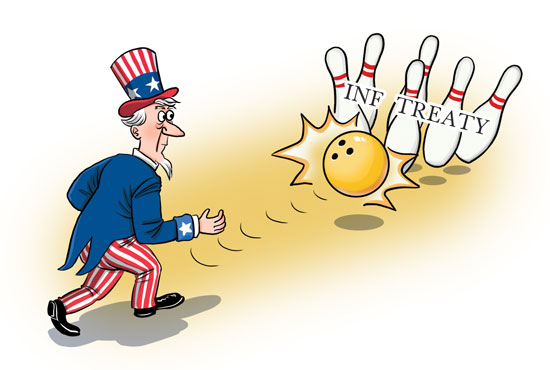Treaty pullouts sabotage pillars of global stability


Editor's note: The Donald Trump administration has vowed to withdraw from the Intermediate-Range Nuclear Forces Treaty. Wang Chunyan, a researcher of South Asia studies with Sichuan University, comments in a column for Voice of China:
US President Donald Trump pledged to strengthen US military power, including missile technologies, during the presidential election, and he aims to lift the restrictions on the development of intermediate-range nuclear weapons by pulling out of the treaty.
The National Defense Authorization Act for Fiscal Year 2018 clearly required Secretary of Defense James Mattis to clarify the cost, progress and feasibility of upgrading the US' missile systems and developing new ones that have a range of 500-5,500 kilometers. Which meant it was only a matter of time before the US consigned the treaty to history.
But it is not only a political decision, it is also an economic one, as it will help the US to support its military manufacturing industries, which is part of Trump's economic security policies.
Also, Trump hopes to use the INF Treaty to divert domestic attention from the murder of the journalist Jamal Khashoggi, and rally support from conservatives, hawks and arms dealers before the midterm elections.
The US withdrawal from the INF Treaty will likely promote a new arms race, casting a dark shadow over the world peace.
It is almost predictable that, if that happens, the US will probably deploy more newly developed intermediate-range missile systems in its allies that are closer to Russia, which will necessarily invite the countermeasures from Russia, intensifying the regional tensions.
The move is another instance of the US unilaterally withdrawing from an international treaty, a trend that has seriously undermined the international practice, whereby sovereign states opt to sacrifice some rights and interests for order, peace and stability.

































